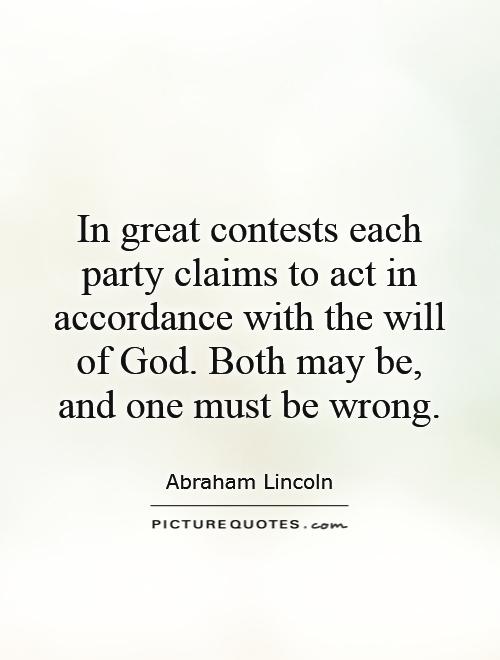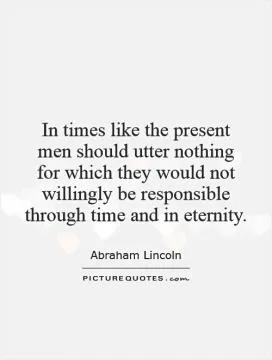In great contests each party claims to act in accordance with the will of God. Both may be, and one must be wrong

In great contests each party claims to act in accordance with the will of God. Both may be, and one must be wrong
Abraham Lincoln, the 16th President of the United States, was a man of great wisdom and insight. He understood the complexities of human nature and the tendency for individuals to justify their actions by claiming divine guidance. In his famous quote, “In great contests each party claims to act in accordance with the will of God. Both may be, and one must be wrong,” Lincoln highlights the inherent conflict that arises when opposing sides believe they are acting in accordance with God’s will.Throughout his presidency, Lincoln faced numerous challenges and conflicts, particularly during the Civil War. Both the Union and the Confederacy claimed to be fighting for what they believed was right, often invoking God’s name to justify their actions. Lincoln, however, recognized that both sides could not possibly be acting in accordance with God’s will, as their goals and actions were fundamentally opposed.
Lincoln’s understanding of the complexities of human nature and the limitations of human understanding allowed him to navigate the difficult moral and ethical dilemmas of his time. He recognized that individuals often use religion as a justification for their actions, even when those actions may be morally questionable or unjust. By acknowledging that both sides in a conflict cannot be acting in accordance with God’s will, Lincoln encouraged a deeper reflection on the motivations and justifications behind one’s actions.












 Friendship Quotes
Friendship Quotes Love Quotes
Love Quotes Life Quotes
Life Quotes Funny Quotes
Funny Quotes Motivational Quotes
Motivational Quotes Inspirational Quotes
Inspirational Quotes